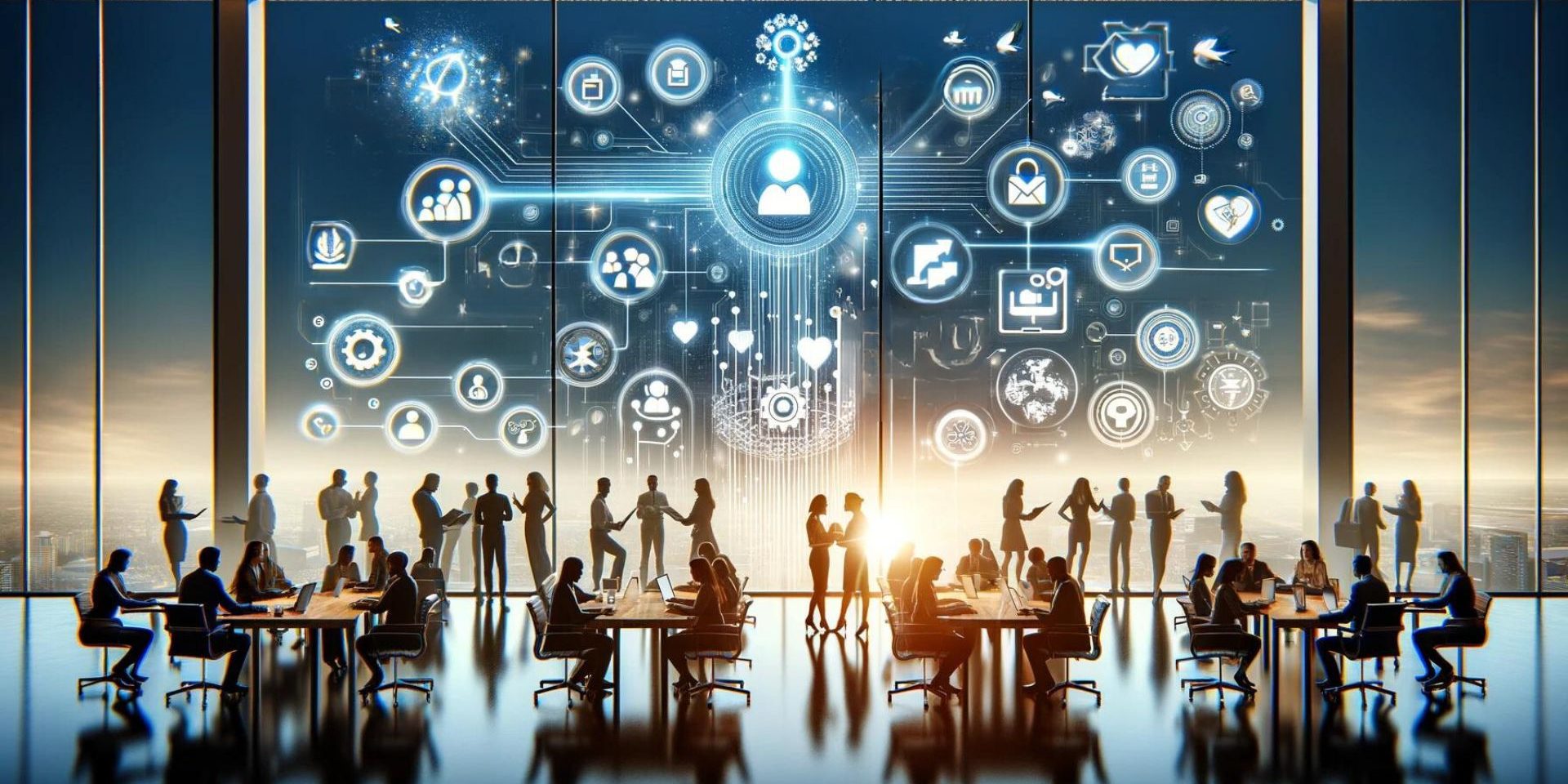Navigating the complex realm of Human Resource management is no small feat, especially for small and medium-sized enterprises (SMEs). Amid the struggle to retain top talent and streamline HR processes, the need for a comprehensive, user-friendly HR solution becomes vital. Enter AI HRMS, a cloud-based Human Resource Management Software specifically designed to combat HR-related challenges. The platform’s simple design promises efficiency, while its customizable features offer adaptability to meet individual business needs. As AI continues to evolve and integrate into HR systems, it offers the promise and potential of AI HRMS to revolutionize HR management, enhance employee experiences, and drive strategic decision-making.
Key Takeaways
- AI HRMS streamlines HR processes, from onboarding to performance reviews, significantly increasing efficiency for SMEs.
- Customizable AI HRMS features enable businesses to tailor the software to their unique operational needs and goals.
- Advanced AI analytics and decision-making tools provide actionable insights, improving talent management and performance evaluations.
- AI HRMS is shaping the future of work by adapting to changes in the workforce and becoming a collaborative partner in HR.
- As AI HRMS technology advances, addressing privacy, ethical concerns, and upskilling HR professionals is crucial for successful integration.
Revolutionizing HR Management with AI
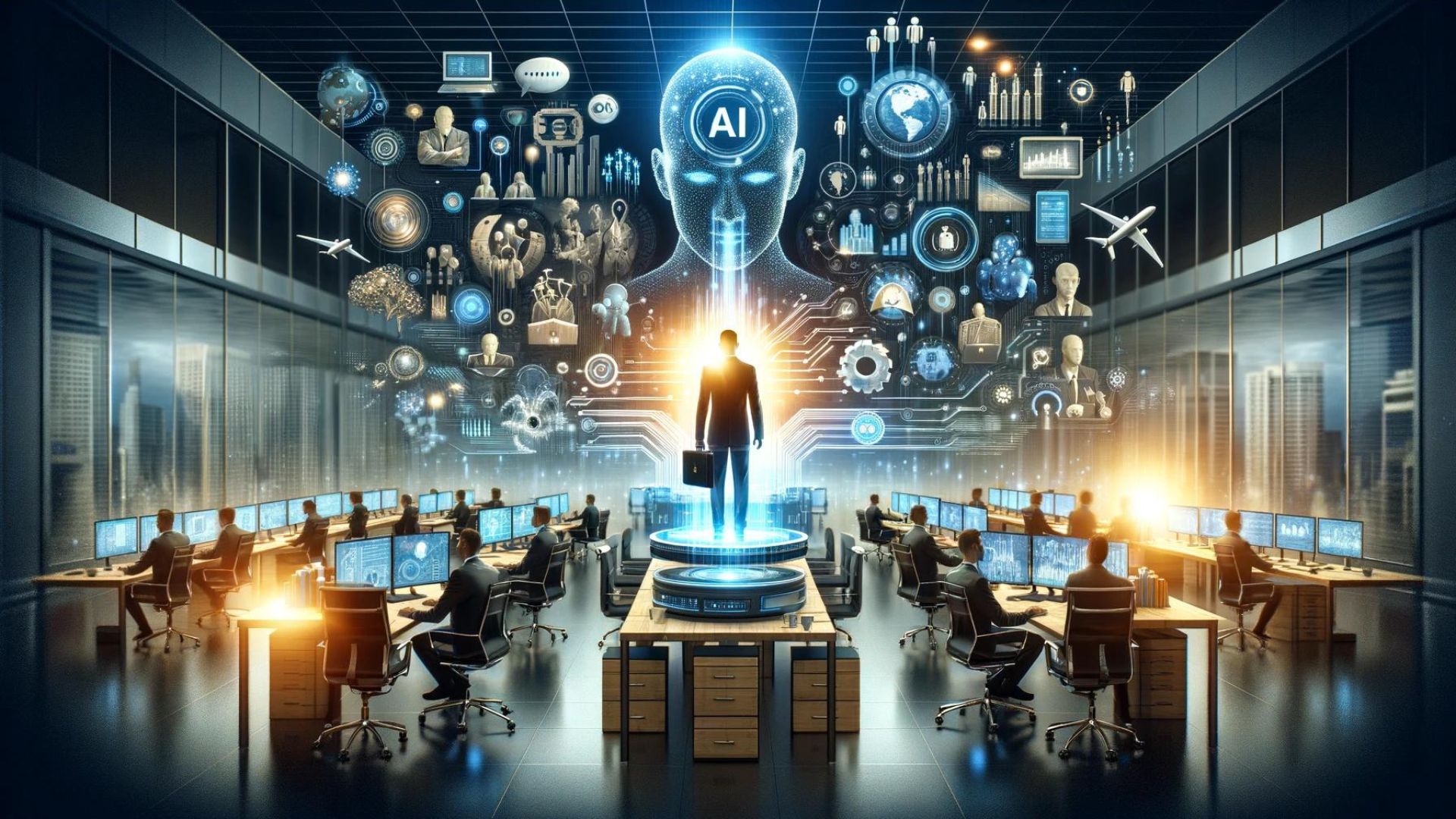
Automating Routine Tasks for Efficiency
The integration of AI into HRMS (Human Resource Management Systems) has brought about a transformative change in handling routine tasks. AI-driven HRMS solutions are redefining efficiency by automating mundane activities, allowing HR professionals to focus on more strategic initiatives. For instance, AI account software significantly automates data entry, streamlines financial reporting, and enables data-driven decisions, which are crucial for improved financial performance.
- Employee Onboarding: Streamline the entire process with customizable templates.
- Employee Leave Application: Manages leave requests and approvals in real time.
- Employee Performance Review: Facilitates continuous feedback and goal setting.
By automating these tasks, companies not only save time and costs but also boost overall productivity. The promise of AI HRMS lies in its ability to handle large volumes of data with precision, ensuring that HR operations run smoothly and efficiently.
Customizing HRMS to Fit Unique Business Needs
In the era of personalization, AI HRMS solutions are not one-size-fits-all. They can be tailored to address the specific challenges and objectives of each business. For instance, a cloud-based AI HRMS platform may offer a range of modules that can be activated or customized based on the company’s size, industry, and HR policies.
- Employee Onboarding: Customizable profile templates and modules.
- Employee Wellness: Integrated health programs with wellness resources.
- Employee Training: Orientation plans for new hires.
- Employee Performance Review: Tools for Setting Goals and Providing Feedback.
By leveraging AI, businesses can automate and refine HR processes, ensuring that their HRMS aligns with their unique operational rhythms and cultural values. This customization extends to various HR functions, from onboarding to performance reviews, making the management of human resources more efficient and effective.
The promise of AI in HRMS is to provide a system that not only streamlines HR tasks but also adapts to the evolving needs of the workforce. As the AI Account Software revolutionizes finance management for small businesses, similarly, AI HRMS is set to transform HR management by automating processes, enhancing security, and optimizing performance analysis.
Ensuring Compliance and Data Security
In the realm of HR, compliance and data security are paramount. AI HRMS systems are designed to uphold the highest standards of legal and regulatory adherence, ensuring that sensitive employee data is protected. Automated compliance checks can significantly reduce the risk of violations and penalties, while robust encryption and access controls safeguard against unauthorized data breaches.
Data privacy is a critical aspect of any HRMS. AI-driven systems can be programmed to comply with global data protection regulations, such as GDPR, and can be tailored to meet the specific legal requirements of different regions. This adaptability is crucial for multinational companies that must navigate a complex web of laws.
- Regular system updates are needed to address new compliance challenges
- Real-time monitoring for potential security threats
- Automated data backups to prevent loss
- Detailed audit trails for accountability and transparency
By integrating AI into HRMS, businesses can create a secure environment that not only protects employee information but also streamlines the compliance process, making it more efficient and less prone to human error.
Enhancing Employee Experiences with AI HRMS
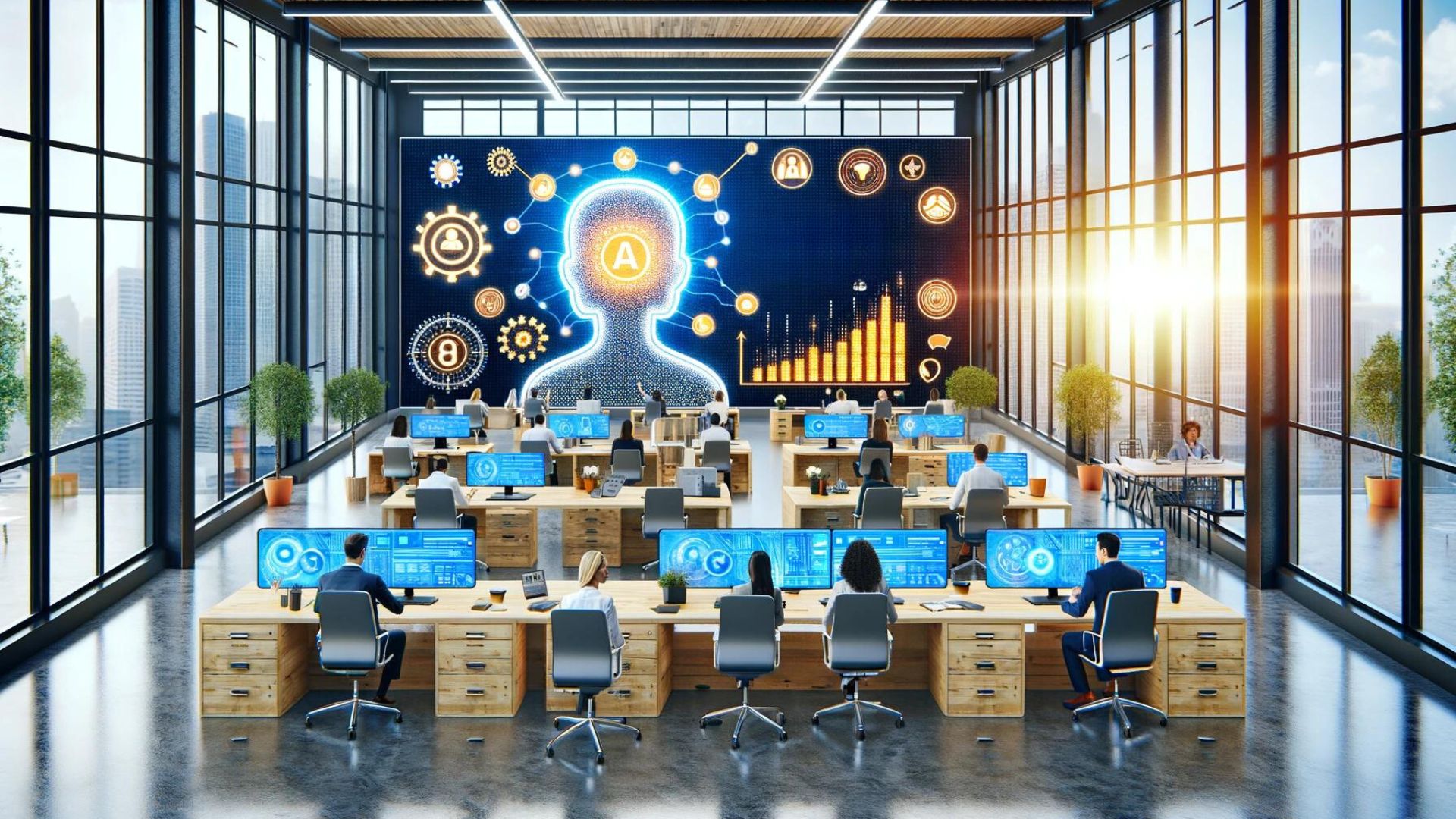
Streamlining the Onboarding Process
The introduction of AI into HRMS has significantly simplified the onboarding process for new employees. By automating administrative tasks, AI HRMS ensures that new hires can focus on integrating into their new roles without being bogged down by paperwork. For instance, AI can pre-populate forms with employee information, schedule training sessions, and track the completion of necessary documents.
Organizations can facilitate data migration and integration by assessing data, developing a plan, executing migration, testing integration, and involving IT teams. Training, onboarding, and data security are crucial for successful implementation and compliance with laws. This structured approach minimizes disruptions and enhances the overall onboarding experience.
The goal is to create a seamless transition for new hires, where they feel welcomed and well-informed from day one.
Here are some of the key benefits of using AI in the onboarding process:
- Reduction in manual data entry errors
- Faster turnaround time for onboarding tasks
- Personalized onboarding experiences for employees
- Improved compliance with regulatory requirements
By leveraging AI, companies are improving efficiency and fostering a positive work environment that values each individual’s time and contribution.
Promoting Wellness and Work-Life Balance
In the era of AI HRMS, promoting wellness and work-life balance has become more achievable than ever. AI-driven tools are integral to creating a supportive environment that prioritizes employee health and well-being. These tools offer personalized wellness programs and monitor work patterns to suggest breaks or changes to prevent burnout.
AI HRMS platforms can seamlessly integrate wellness videos and pamphlets into comprehensive health programs, aiming to improve or maintain employee well-being.
By leveraging AI, companies can also ensure that employees are not overburdened with work, fostering a culture where work-life balance is not just encouraged but facilitated. Here are some ways AI HRMS contributes to this goal:
- Monitoring employee work hours to prevent excessive overtime
- Suggesting optimal break times using employee work pattern data
- Providing access to mental health resources and support
- Encouraging regular physical activity through reminders and challenges
The promise of AI HRMS in promoting wellness and work-life balance lies in its ability to adapt to the unique needs of each employee, creating a more harmonious and productive workplace.
Facilitating Continuous Learning and Development
In the age of AI, continuous learning and development are not just beneficial but essential for employees to stay competitive. AI HRMS platforms are uniquely positioned to support this by offering personalized learning paths and skill assessments. AI-driven analytics can identify skill gaps and recommend courses, ensuring that employees are always at the forefront of industry standards.
- By embracing AI as a collaborative partner in learning, employees can leverage technology to enhance their skills without feeling overwhelmed by the pace of change.
- Coping Strategies for Employees
- Embrace continuous learning to stay relevant
- Seek organizational support for training
- Leverage AI for personalized learning experiences
By integrating AI into HRMS, companies can create a culture of continuous improvement, where learning is an ongoing process rather than a periodic event.
AI-Powered Analytics and Decision Making
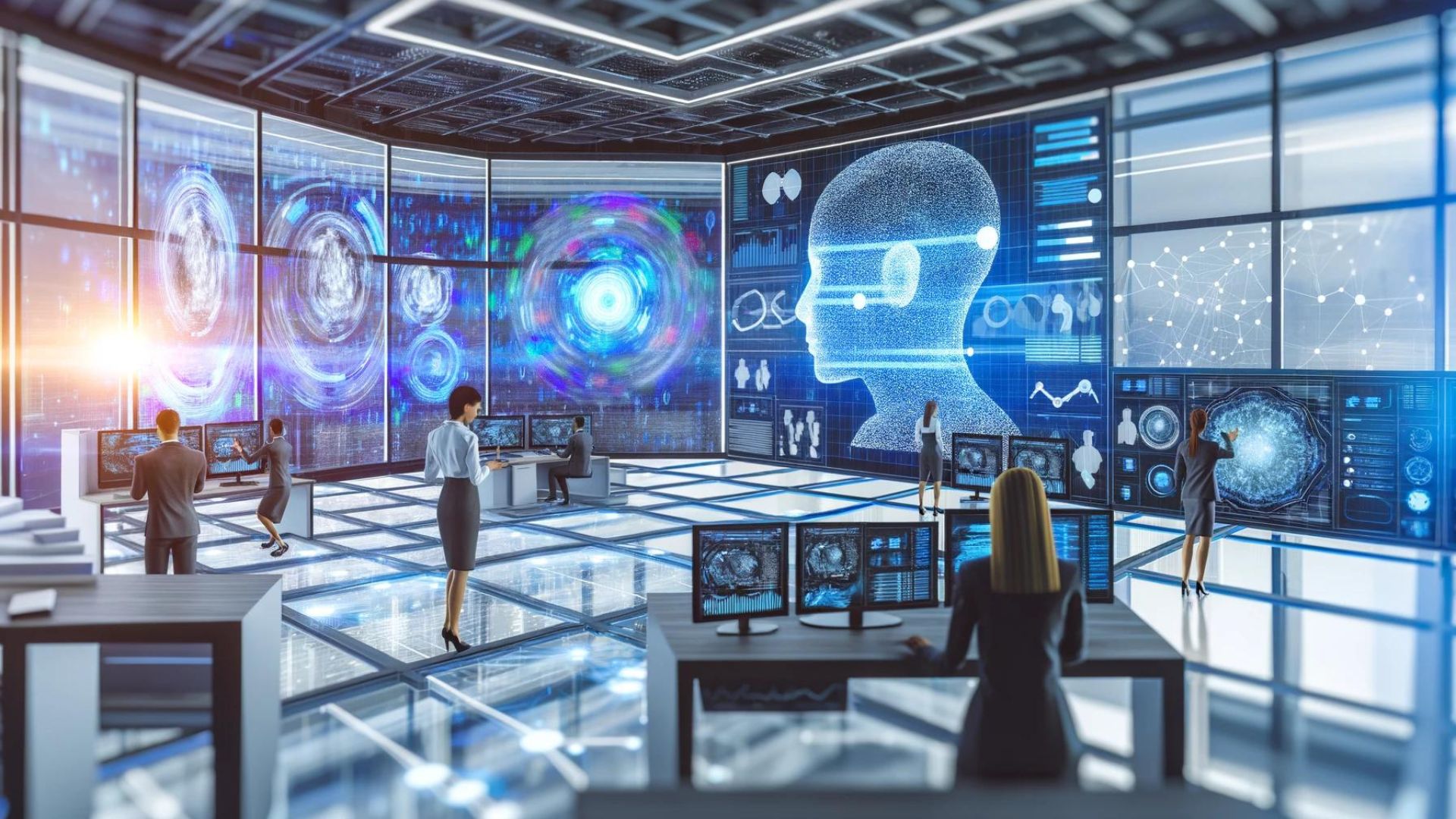
Gaining Insights from Big Data
In the era of big data, AI HRMS systems are transforming the landscape of human resource management by leveraging vast amounts of data to provide unprecedented insights. AI account software enables easy retrieval and analysis of financial data, empowering businesses with data-driven insights for improved financial decision-making. This capability is crucial for HR professionals tasked with optimizing the allocation of human capital and resources.
By analyzing patterns and trends within the HR data, organizations can make more informed decisions about talent acquisition, workforce planning, and employee retention strategies.
The following list outlines some of the key functionalities that AI HRMS offers to harness the power of big data:
- Employee Onboarding: Streamlines the integration of new hires into the company culture and processes.
- Employee Wellness: Provides insights into health program effectiveness and employee well-being.
- Employee Training: Tracks the progress and impact of training programs on performance.
- Employee 360 Feedback: Gathers and analyzes feedback from multiple sources for a comprehensive view of employee performance.
- Employee Performance Review: Facilitates detailed performance analysis to guide development and promotions.
Improving Performance Reviews with AI Feedback
Integrating AI into performance reviews transforms the traditional, often subjective process into a dynamic, data-driven exercise. AI HRMS systems are now capable of providing real-time feedback, which is more timely and precise. This immediacy helps employees to adjust and improve their performance continuously, rather than waiting for annual review cycles.
AI account software enhances accuracy, efficiency, and decision-making in financial workflows by automating tasks, analyzing data, and providing insights. Similarly, AI in HRMS offers a structured approach to performance management, reducing the manual workload and optimizing operations. Employees benefit from AI’s ability to track progress against goals, identify improvement areas, and suggest training modules to bridge skill gaps.
The promise of AI HRMS in performance reviews lies in its ability to provide actionable insights that drive growth and improvement at an individual level.
Here are some of the key functionalities that AI HRMS brings to performance reviews:
- Employee 360 Feedback: This enables immediate feedback, helping employees improve their performance instantly.
- Employee Performance Review: Offers avenues for nurturing employee growth through setting goals, feedback, reviews, and one-on-one conversations.
- Predictive Analytics: Uses historical data to forecast future performance and identify potential leaders.
By leveraging these tools, organizations can create a more engaging and effective performance review process, one that not only evaluates past performance but also empowers employees to excel in the future.
Predictive Analytics for Talent Management
Implementing predictive analytics in talent management has transformed HR into a strategic powerhouse. AI-driven HRMS systems can now forecast future workforce trends and needs, enabling proactive recruitment and retention strategies. This foresight is crucial in a competitive talent market, where the right hire can make a significant difference.
- Identification of potential high performers
- Analysis of Workforce Attrition risks
- Prediction of future skill requirements
By leveraging data on employee performance, engagement, and turnover, AI HRMS can identify patterns and predict outcomes with remarkable accuracy. This allows HR professionals to focus on strategic initiatives rather than reactive measures.
With predictive analytics, HR can anticipate and prepare for changes, ensuring that the organization always has the right talent in place to meet its objectives.
The benefits of predictive analytics extend beyond talent acquisition. It plays a vital role in employee development by identifying areas for growth and aligning training programs with future industry demands. As AI account software enhances financial decision-making, similarly, predictive analytics in HRMS empower businesses to optimize their human capital investment.
The Future of Work: AI HRMS Leading the Way
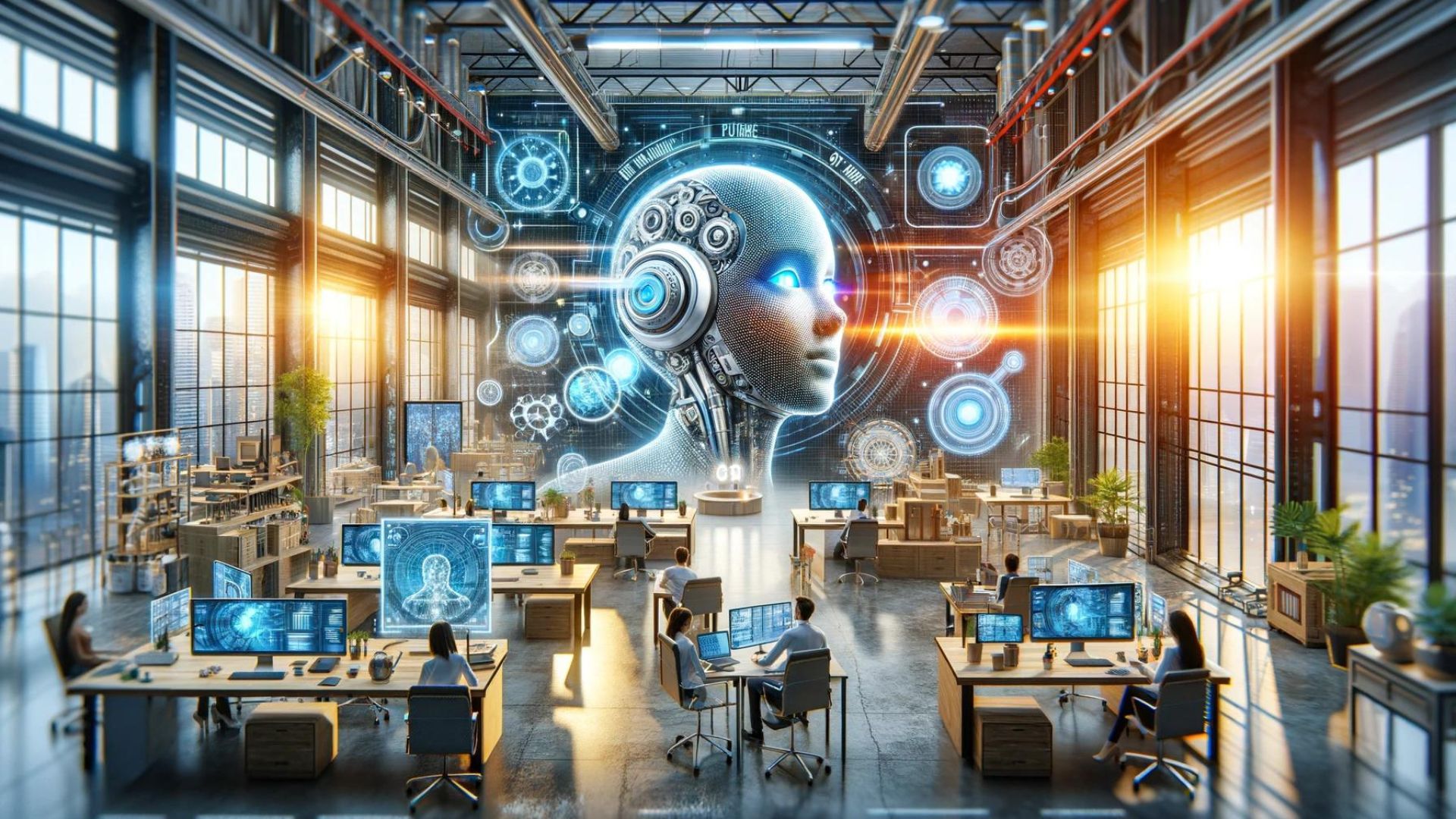
Adapting to a Changing Workforce
As the workforce evolves, integrating AI into HRMS becomes crucial for businesses to remain competitive. AI HRMS systems are pivotal in managing the dynamic needs of modern employees, who require flexibility and support for continuous learning. Embracing AI as a collaborative partner rather than a competitor is essential for companies to harness the full potential of their human capital.
- Coping Strategies for Employees:
- Embrace continuous learning and skill development.
- Seek organizational support for training and up-skilling initiatives.
- Humanizing the Workplace:
- Celebrate creativity, emotional intelligence, and critical thinking.
- Leverage human strengths alongside AI technology.
The promise of AI HRMS lies not just in automating tasks, but in its ability to reshape traditional workflows and foster a culture of continuous learning and adaptation.
Addressing misconceptions and fostering a culture of understanding and collaboration will be key to ensuring that employees view AI as an aid to their roles, not a threat. The future of work is not about replacing humans with machines but about the synergy between human ingenuity and artificial intelligence.
AI as a Collaborative Partner in HR
Integrating AI into HR systems marks a shift towards viewing technology as a collaborative partner rather than a mere tool. AI enhances human capabilities, enabling HR professionals to navigate the complexities of a technology-driven workplace with greater ease. By reshaping traditional workflows and fostering a culture of continuous learning, AI becomes an ally in the pursuit of efficiency and innovation.
- Reimagining AI’s Role: AI is not a replacement for human workers but a complement that enhances productivity.
- Addressing Misconceptions: Dispelling Fears and Fostering a Culture of Collaboration.
- Coping Strategies: Encouraging continuous learning and skill development to remain relevant.
AI’s potential in HR extends beyond automation, offering insights and support that can transform the workplace. It is about humanizing the workplace, celebrating qualities like creativity and emotional intelligence, and leveraging these strengths alongside AI technology.
The promise of AI HRMS lies not only in its ability to streamline processes but also in its capacity to act as a strategic partner. It provides a platform for HR professionals to thrive amidst the challenges and opportunities of a digital landscape.
The Role of AI in Shaping HR Strategies
The integration of AI into HR strategies marks a transformative shift in how organizations approach talent management and workforce planning. AI’s predictive analytics can significantly enhance the strategic decision-making process, allowing HR professionals to anticipate future trends and prepare accordingly. For instance, AI can forecast staffing needs, identify skills gaps, and suggest training programs before a deficit impacts productivity.
AI HRMS systems are not just about automation; they are about providing strategic insights that were previously inaccessible. By analyzing vast amounts of data, these systems can uncover patterns and provide recommendations that align with long-term business goals. This proactive approach to HR management is crucial in a rapidly changing business environment.
- Key Takeaways from AI Implementation:
- Streamlining financial processes
- Ensuring data security
- Increased productivity
- Cost savings
AI’s role in HR is evolving from a back-office automation tool to a front-line strategic partner. As AI continues to mature, its influence on HR strategies will only deepen, necessitating a new level of sophistication in HRMS solutions.
Overcoming Challenges and Embracing AI in HR
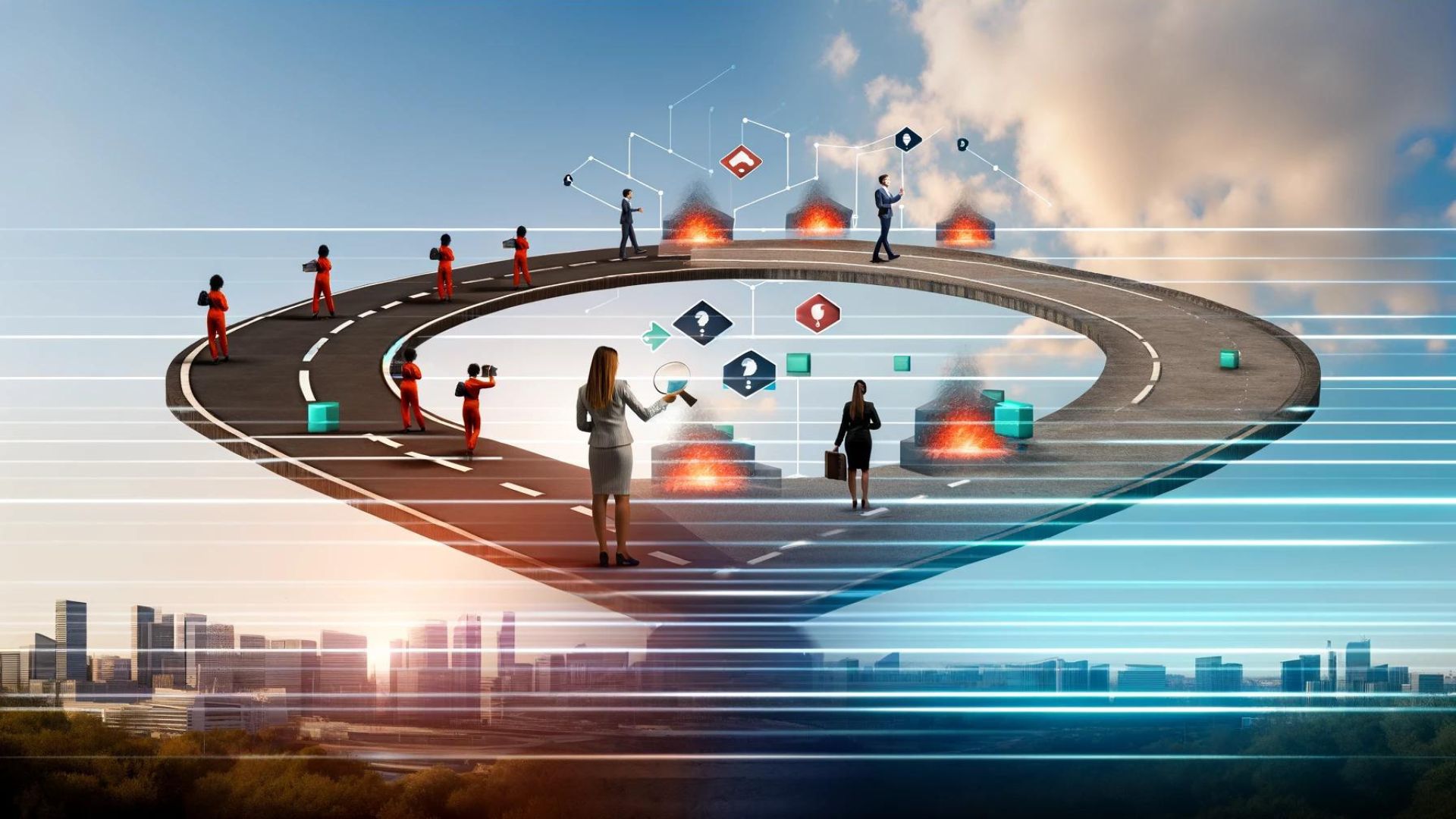
Addressing Privacy and Ethical Concerns
In the realm of AI HRMS, privacy and ethical concerns take center stage as businesses strive to protect sensitive employee data. Ensuring the confidentiality and security of this information is paramount, and AI account software plays a crucial role in this regard. It helps businesses automate compliance processes, stay up-to-date with regulations, and manage complex regulatory challenges effectively.
To address these concerns, a multi-faceted approach is essential:
- Establishing clear policies and protocols for data handling
- Regularly updating security measures to guard against breaches
- Providing transparency to employees about how their data is used
- Conducting regular audits to ensure compliance with privacy laws
By proactively addressing these issues, companies can foster a culture of trust, which is critical for the successful integration of AI into HR processes. Cultivating this trust involves not only implementing robust security practices but also ensuring that employees are informed and have control over their personal information.
Cultivating a Culture of Trust and Transparency
In the realm of AI HRMS, fostering a culture of trust and transparency is not just a goal; it’s a necessity for the technology to be embraced by employees and management alike. Trust is the cornerstone of any successful AI implementation, particularly regarding sensitive HR data and processes. To achieve this, organizations must prioritize clear communication about how AI systems work and the benefits they bring.
- Transparency in AI HRMS involves:
- Openly discussing the capabilities and limitations of AI tools.
- Providing clarity on how employee data is used and protected.
- Ensuring that AI decisions can be explained and are accountable.
Moreover, cultivating such a culture goes beyond mere policy; it requires consistent action and engagement from all levels of the organization. A collaborative approach, where AI is seen as a partner rather than a replacement, can alleviate concerns and build a more cohesive work environment.
By embedding transparency into the DNA of AI HRMS strategies, companies can demystify the technology and empower their workforce. This not only enhances the acceptance of AI but also fosters an atmosphere where continuous learning and adaptation are part of the organizational ethos.
Upskilling HR Professionals for the AI Era
As AI continues to permeate the HR landscape, the upskilling of HR professionals becomes imperative. Embracing continuous learning and skill development is crucial for staying relevant in a technology-driven world. Organizations must support training and upskilling initiatives, ensuring their HR teams are equipped to harness the full potential of AI HRMS.
To successfully integrate AI into HR practices, a structured approach is essential. Drawing from a Guide for implementing AI Account Software, the following steps can be highlighted:
- Plan and set clear goals for AI integration
- Involve all relevant stakeholders in the process
- Provide comprehensive training to HR professionals
- Gather feedback to refine and improve AI systems
By fostering a culture of continuous learning and adaptation, HR professionals can thrive in an AI-enhanced workplace, leveraging AI as a collaborative partner rather than a competitor.
Addressing misconceptions and cultivating a workplace culture of understanding and collaboration are also key. As AI HRMS evolves, it offers tools and functionalities that can be customized to fit the unique needs of each organization, from employee onboarding to performance reviews, ensuring that HR professionals are not just operators but strategic partners in shaping the future of work.
In the ever-evolving landscape of human resources, overcoming challenges and embracing AI is key to staying ahead. AI HRMS is your partner in this journey, offering a cloud-based platform that simplifies HR processes for SMEs. From employee onboarding to performance reviews, our comprehensive suite of tools is designed to enhance your HR strategy. Ready to transform your HR operations? Visit our website and discover how AI HRMS can support your business goals.
Conclusion
As we navigate the complexities of HR management, the advent of AI HRMS stands as a beacon of innovation and efficiency for SMEs worldwide. By offering a suite of customizable tools that streamline onboarding, wellness programs, training, feedback, and more, AI HRMS is redefining the HR landscape. It not only simplifies HR processes but also empowers employees through continuous learning and skill development, fostering a workplace that harmonizes human creativity with AI’s analytical prowess. The promise and potential of AI HRMS lie in its ability to transform HR into a strategic partner in business success, making it an indispensable asset for any organization looking to thrive in the digital era. As AI HRMS continues to evolve, it is poised to become the most affordable and effective HR solution, ensuring that SMEs can focus on what they do best—growing their business and nurturing their talent.
Frequently Asked Questions
What is AI HRMS and how can it benefit SMEs?
AI HRMS (Artificial Intelligence Human Resource Management Software) is a cloud-based platform designed to streamline HR processes for small and medium-sized enterprises (SMEs). It automates tasks such as employee onboarding, wellness programs, leave and claim management, and performance reviews, offering an efficient and customizable solution for HR challenges.
How does AI HRMS enhance the employee onboarding experience?
AI HRMS provides customizable profile templates and modules that cover asset tracking to absence management, facilitating a smooth introduction for new hires. It also incorporates wellness resources and orientation plans to ensure employees settle comfortably into their roles.
Can AI HRMS improve employee performance reviews?
Yes, AI HRMS features 360 feedback tools that enable immediate feedback, helping employees to improve their performance continuously without waiting for traditional performance reviews. It also supports setting goals, providing reviews, and one-on-one conversations to nurture employee growth.
What are some coping strategies for employees in an AI-driven workplace?
Employees can embrace continuous learning and skill development to stay relevant, seek organizational support for training and upskilling initiatives, and leverage their unique human qualities such as creativity and emotional intelligence in collaboration with AI technology.
How does AI HRMS address privacy and ethical concerns in HR?
AI HRMS is designed with compliance and data security in mind, ensuring that personal and sensitive information is protected. It also fosters a culture of trust and transparency to address ethical concerns surrounding the use of AI in HR.
What role does AI play in shaping future HR strategies?
AI acts as a collaborative partner in HR, aiding in decision-making, analytics, and improving employee experiences. It helps HR professionals adapt to a changing workforce and integrate continuous learning and adaptation into their strategies.


